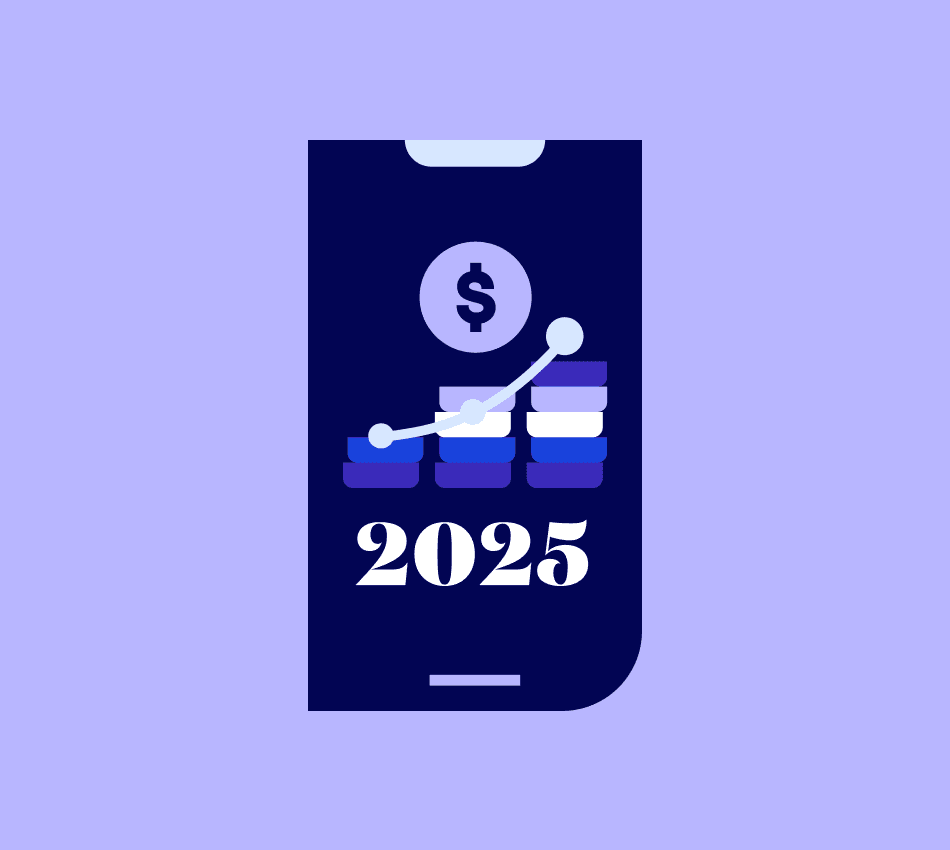From credit cards to NFC readers and AI banking solutions, financial technology has rapidly transformed banking in the last few decades. Big data analytics has been the major innovation affecting us today, allowing providers to gather more customer insights and optimize their operations like never before. New and existing technologies based on big data will continue to redefine the way we manage and trade our money in 2025—let’s break down some of the key small business trends to watch.
What you need to know
- AI and machine learning will continue to enhance fraud protection and may see greater adoption in customer service.
- Decentralized finance could start seeing more adoption in cross-border transactions and non-traditional banking, though these networks are subject to any further regulations.
- Banking branches are in decline and digital-only banks are on the rise. Mobile and tap-to-pay technology may expand beyond brick-and-mortar sales to further integrations.
1. Artificial intelligence and machine learning
Banking providers already use AI and machine learning to analyze huge customer data sets, allowing them to:
- Enhance fraud protection by creating a model of customer behavior
- Assess lending applicants for risk
- Predict customer needs to offer more personalized banking recommendations
As large language models and voice recognition AI improves, we’ll see AI used to provide more responsive customer service chatbots. Beyond recommendations, advances in AI could soon allow for personalized user experiences, such as dashboards and mobile apps that adapt to a customer’s unique technical knowledge or visual impairments.
2. Blockchain
Cryptocurrencies continue to be a highly volatile store of value, which makes it unlikely that they’ll become official currencies in the United States. However, decentralized finance (DeFi), in general, may continue to develop as a way of making transactions across borders and providing banking services outside traditional banks. How exactly DeFi networks develop may eventually lead to federal protections or regulation.
More generally, blockchain technology has a mixed future in finance, as it makes privacy difficult. For example, a smart contract is stored on the blockchain and automatically executes once its preconditions are met. This contract is difficult to edit, the unedited versions can never be deleted, and every version is visible to those with blockchain access. There are some situations in which this lack of privacy may be beneficial—for example when disputing fraud or abuse—but radical transparency would conflict with banking sector regulations.
3. Digital-only banks and branchless banking
The number of brick-and-mortar bank branches has been steadily declining since the mid-2010s as convenient mobile banking continues to develop, allowing providers to slash physical infrastructure costs as commercial real estate prices increase. Many digital-only or digital-first banking providers provide 24/7 access and lower fees, putting pressure on traditional banks to innovate to retain customers.
4. Digital payments
Mobile payment apps have largely reached their final form for peer-to-peer transactions, but will continue to develop the features of their business accounts to compete with banking providers.
Contactless near-field communication (NFC) payments have become standard in the United States. When combined with digital wallets, contactless payments are the most secure digital payment method while requiring the least infrastructure. Expect to see more tap-to-pay terminals beyond the checkout lines, in places such as:
- Cross-integrated public transit, so you can use your phone to ride anywhere
- Between phones, so you can tap-to-pay without a terminal
- Smart home technology to quickly purchase products and services
5. Regulatory technology (RegTech)
With all these technological leaps comes mounting compliance and regulatory challenges that consume costly resources. RegTech is an emerging set of technological solutions that helps banking providers manage compliance by automating tasks like fraud detection.
6. Cybersecurity
Tools like biometrics and ever-advanced data encryption have made banking more secure than ever before. AI is also being used to create new threat detection tools like behavioral authentication, which verifies customer activity based on a predictive model of expected behavior. Once quantum computers become more powerful than conventional computers, they’ll be able to crack encryption keys much faster, but they’ll also allow for more advanced encryption.
7. Sustainability
Carbon-neutral technology, sustainable banking practices, and green finance will continue to see adoption in the financial sector. Lenders will continue to offer loans and investments toward environmentally conscious practices and adopt sustainability goals.
Bank for now and later with Bluevine Business Checking.
